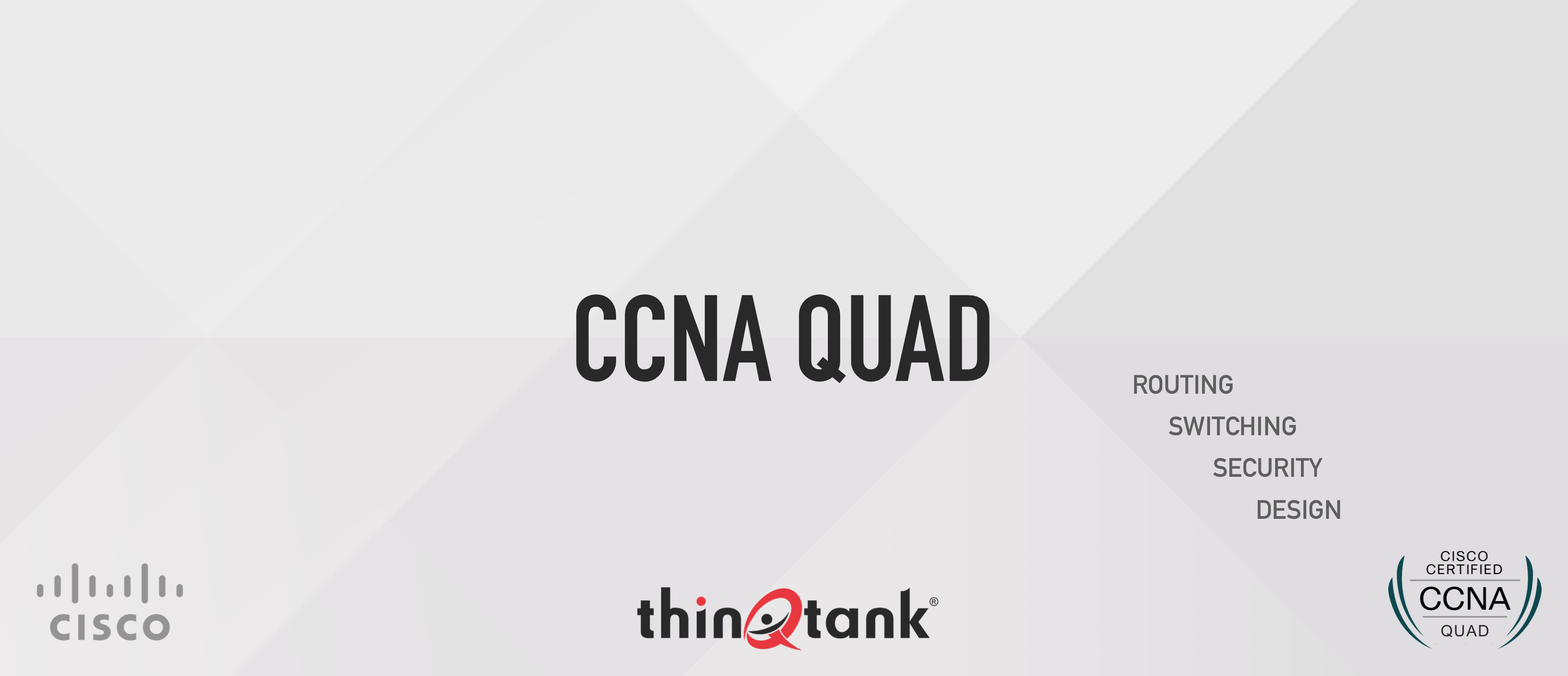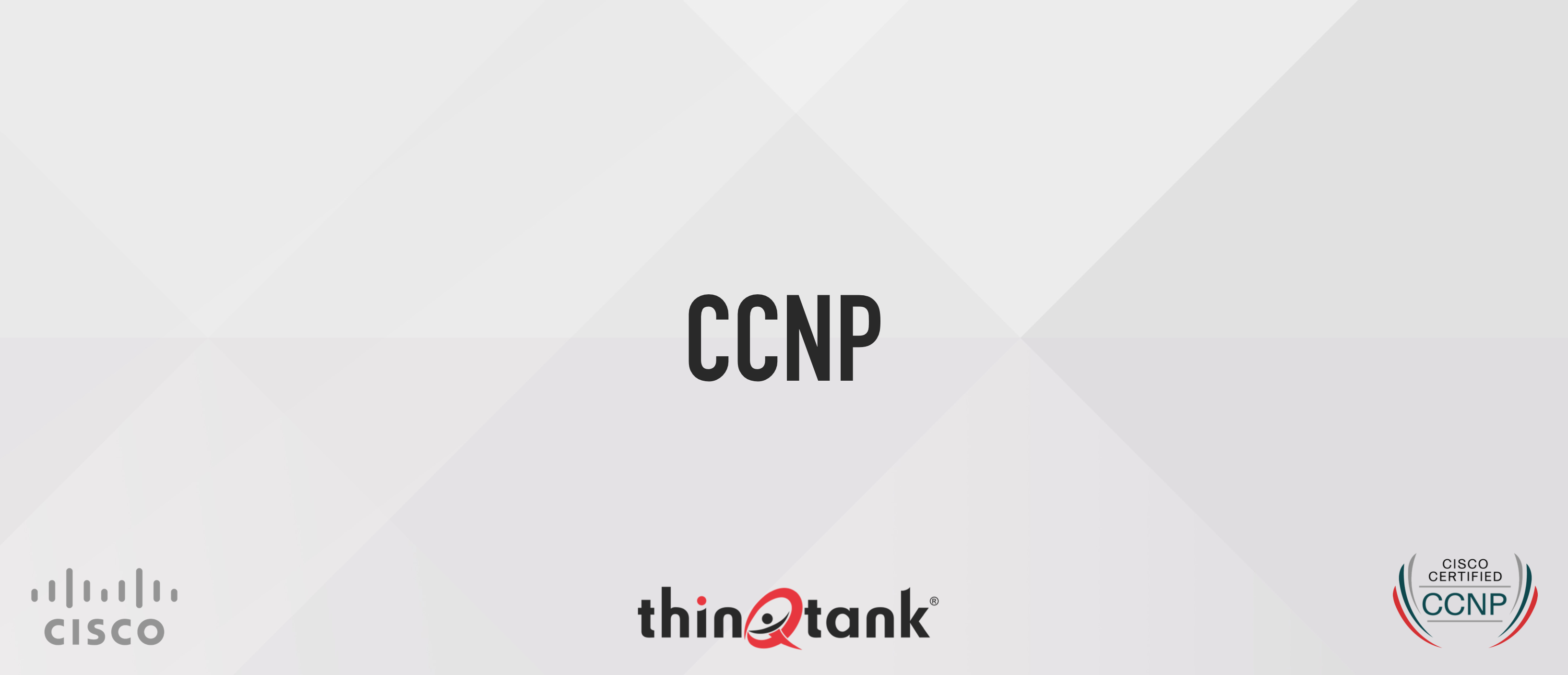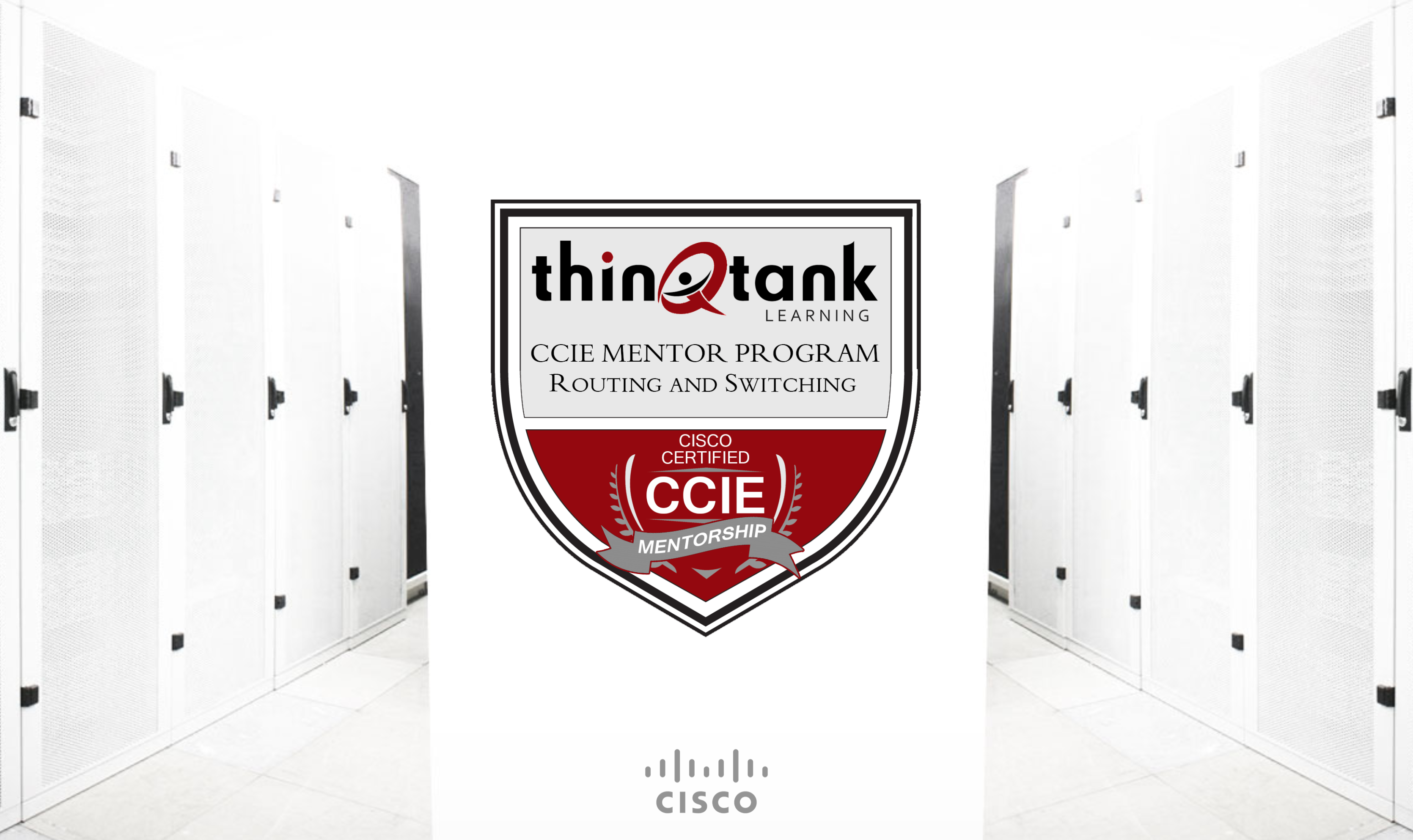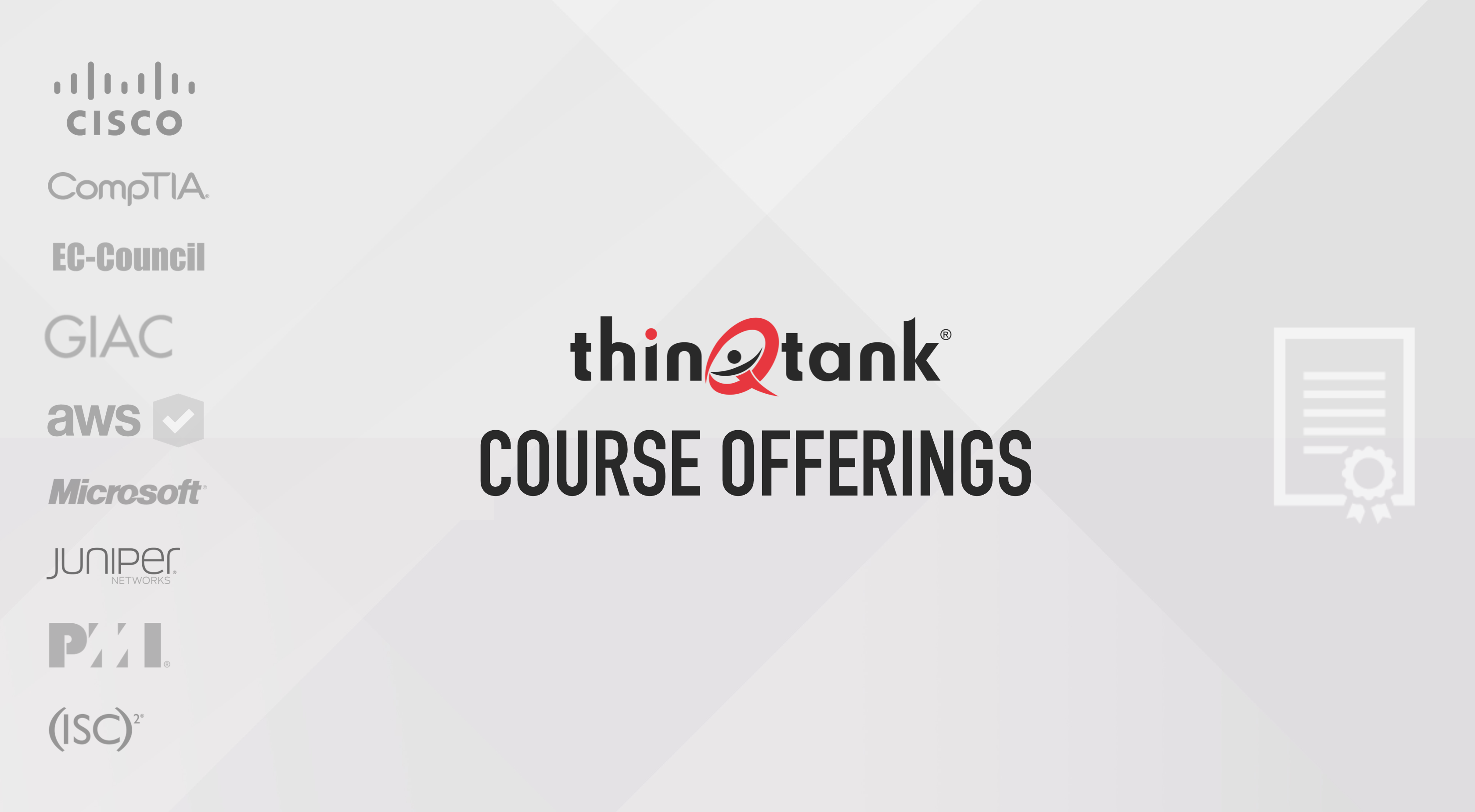The Practical Guide To Cisco Career Certification Programs
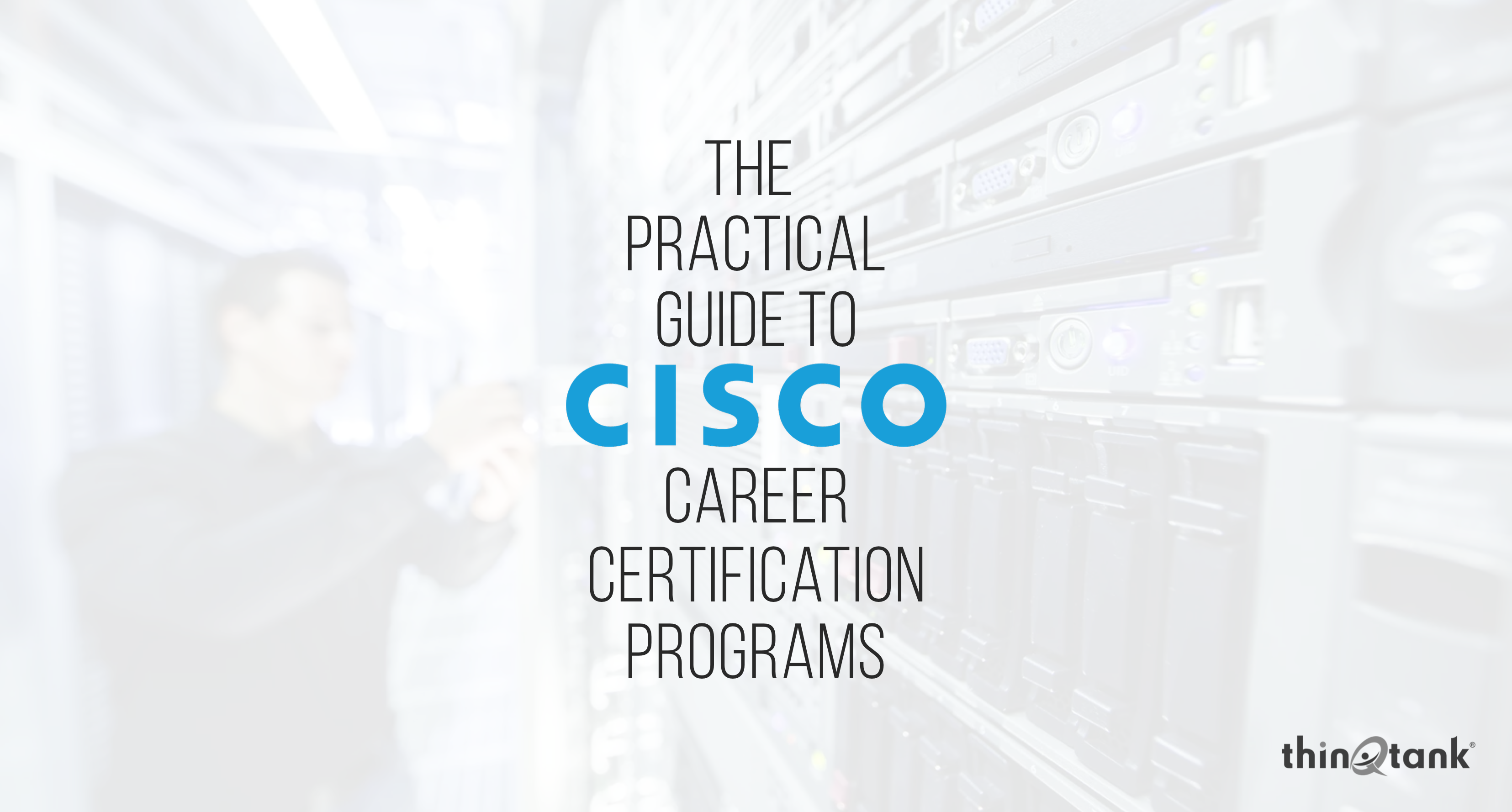
Cisco Systems employs over 70,000 people and is best known for routing and switching products that can be found in businesses across the globe. The networking titan also manages one of the most comprehensive, relevant and respected certification programs in the IT world. Whether you’re new to networking or a respected master, you’ll consider achieving at least one Cisco certification – if not, you probably already hold that!
Cisco’s Career Certification program covers a wide range of networking disciplines across varying difficulty and experience levels.
To achieve any of Cisco’s qualifications, professionals must pass one or more exams administered by Pearson VUE. These exams are tough and even the most basic levels will first require in-depth knowledge of the Cisco technologies being assessed.
Most Cisco certifications align to clearly defined ranks listed in terms of experience and prerequisites required. Cisco offers five levels of network certification:
• Entry
• Associate
• Professional
• Expert
• Architect
Each band typically includes a range of different certifications built for candidates to enhance their knowledge across distinct networking subtopics like routing and switching, cloud and security.
There are two distinct paths within Cisco’s certification program – network operation and network design. While both tracks begin with the entry-level CCENT certification, the paths quickly diverge across separate certifications, skills and knowledge tested.
This is the first step on Cisco’s certification ladder and two entry-level Cisco certifications are available: Cisco Certified Entry Networking Technician (CCENT) and Cisco Certified Technician (CCT).
The CCENT builds and proves the skills required to perform entry-level network support roles – it’s also the first half of the CCNA. Training providers will often group both the ICND1 (CCENT’s certification exam) with the ICND2(which qualifies professionals for the CCNA) into one course.
The CCT certification builds the skills needed to diagnose, restore, repair and replace critical Cisco networking system devices onsite. It’s more hands-on than the CCENT and comes in two flavors: Data Center and Routing and Switching.
The CCENT qualifies candidates to access the CCNA certification exam. However, the CCT certification will not qualify candidates to sit the CCNA exam.
The majority of professionals who hold the CCENT certification will progress quickly onto Cisco’s Associate-level certifications: Cisco Certified Network Associate (CCNA) and Cisco Certified Design Associate (CCDA).
Professionals following the network operation track will aim to achieve one of nine CCNA certifications available, each recognizing basic skills in the installation, support, and troubleshooting of wired and wireless networks.
While Some CCNA certifications do not require the completion of the CCENT, it’s still highly recommended, especially if the candidate is lacking relevant on-the-job experience.
CCENT holders will only need to pass one additional exam (ICND2) to achieve the industry-standard CCNA: Routing and Switching certification.
The CCDA is the first certification on the network design track (but does require completion of the CCENT). This certification proves a professional’s ability to design basic wireless and wired networks, incorporating security and voice solutions. Once a CCNA or CCDA is attained, professionals will be qualified to attempt Cisco’s professional level certifications.
The professional-level certifications include credentials across operations and design tracks: Cisco Certified Network Professional (CCNP) and Cisco Certified Data Design Professional (CCDP).
Much like the CCNA, there is a range of CCNP certifications covering a range of networking job roles, including Data Center, Cloud and Wireless.
CCNP-level certifications validate a professional’s ability to deploy and troubleshoot local and wide-area enterprise networks while working with specialists in security, voice, wireless and video. CCNP holders also qualify themselves to work as network engineers, technicians and support engineers.
One certification is available for professionals on the network design track – the CCDP. This certification proves a candidate’s ability to design and deploy scalable and multilayer switched networks. To gain the CCDP, candidates must complete three exams.
To achieve these advanced certifications, candidates must possess valid CCNA or CCDA certifications as well as the in-depth and relevant knowledge required to pass the certification exams. Every CCNP certification (apart from the CCNP: Routing and Switching) requires the completion of four exams.
Achieving the CCIE is an incredible milestone and a badge that every networking professional will wear with pride. There are seven expert-level certifications available, including one certification for the network design track:
• CCDE
• CCIE Collaboration
• CCIE Data Center
• CCIE Routing and Switching
• CCIE Security
• CCIE Service Provider
• CCIE Wireless
CCIE holders possess expert technical knowledge of Cisco network products and solutions within the relevant CCIE technical track. The single design-focused CCDE certification singles out experts who design infrastructure solutions for large businesses and enterprise environments.
To achieve a CCIE certification, professionals must pass a rigorous multi-step certification exam, covering a two-hour written assessment and a prolonged eight-hour hands-on lab exam. And while Cisco does not demand any official prerequisites to undertake the exam, professionals are recommended to possess a relevant CCNP and masses of experience before attempting the CCIE.
Introduced in July 2016, Cisco now includes an evolving technologies domain in their expert-level exams. As you might expect, this domain targets new technologies, like cloud and the Internet of Things (IoT) and accounts for 10% of the exam score. This is a mechanism from Cisco to ‘future proof’ their CCIE certifications, providing professionals with cutting-edge skills and giving employers the confidence that CCIE holders will be up-to-speed on new networking technologies.
The network design track continues to Cisco’s Architect-level certification. Known as the Ph.D. of the Cisco Career Certification Program, the Cisco Certified Architect (CCAr) is designed for network or data center architects.
Outside of Cisco’s certification track sit several specialist certifications. By earning these specialist certifications, network professionals can enhance their core networking knowledge in technologies across security, data center and video.
The specialist certifications are divided between Technical Specialists and Digital Transformation Specialists. Many of these certifications also align with Cisco’s Partner Specialization program, validating the Cisco skills and knowledge of entire businesses.
Whether you’re following a career in network operations or network design, Cisco certifications are well positioned to help you perform in a networking role that uses Cisco’s networking equipment.
Luckily for candidates, the popularity of Cisco’s certification program has generated a wide breadth of guides, tutorials and resources designed to help networking pros achieve their certifications.
Cisco’s Learning Network provides candidates with access to exam topics, live seminars, training videos, forums and study materials. Candidates can also get access to high-quality Cisco books available from Cisco Press, as well as other independent publishers.
Students that are seeking to get Cisco-certified fast can opt for instructor-led training from official Cisco learning partners. Official Cisco training is taught by Certified Cisco Systems Instructors and includes the latest Cisco networking equipment.
If you have questions or would like more information about our Training and Certification Programs, we would love to hear from you! Give us a call us at 855-TO-THINQ (855-868-4467) or email us at website@thinqtanklearning.com.





